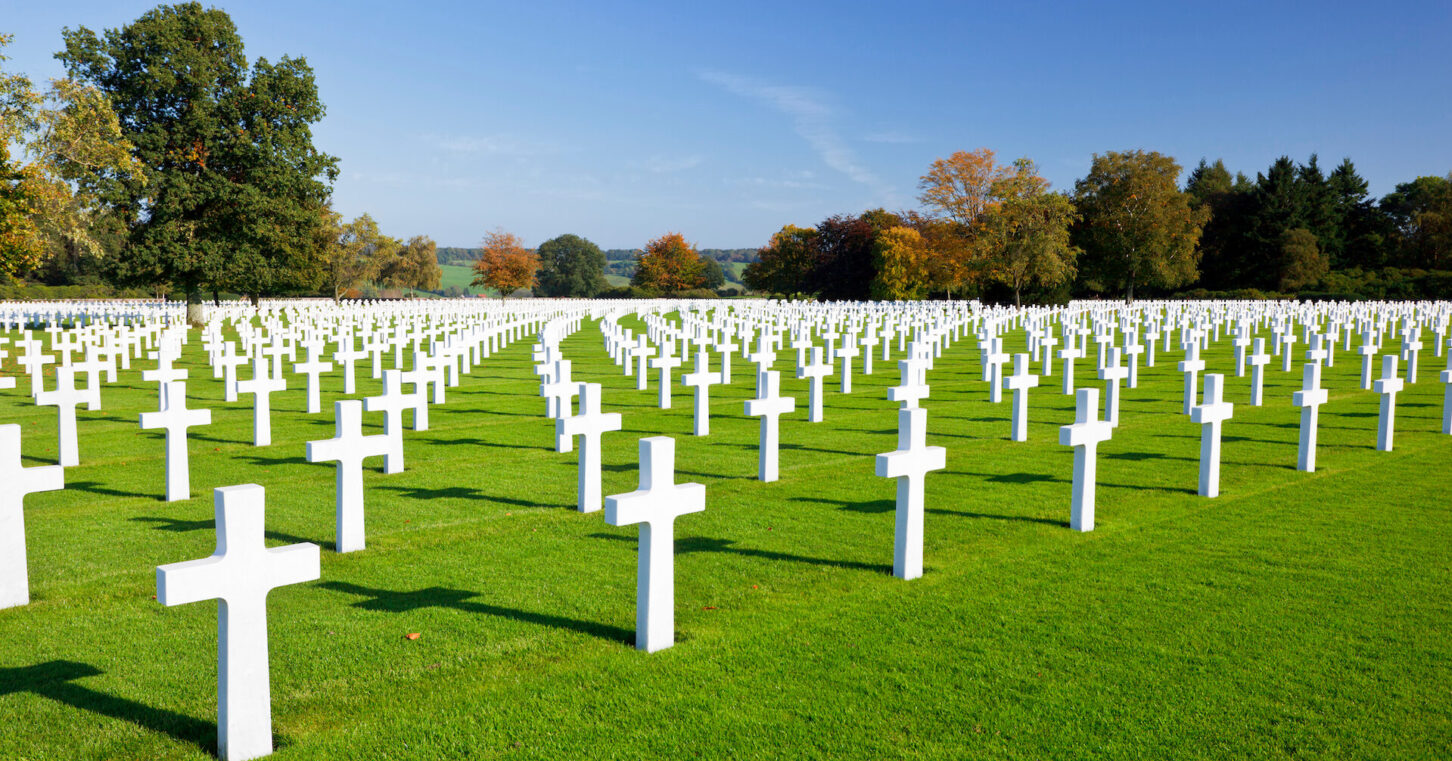
The train trip from Brussels lasted two hours, with a change at Liege. On most days, Welkenraedt was a sign post you blinked past on the way to attractions in Germany: Cologne, Monschau, the only Wal-Mart for 100 miles. On this Memorial Day, it was a place to stop.
A few dozen miles to the south lay the northernmost bulge from Hitler’s Ardennes Offensive in 1944. A couple of miles to the north, in Henri-Chapelle, lie the remains of 7,992 American soldiers who never made it out of Belgium.
A couple of miles was more than my wife and I had anticipated. A young woman sat behind the ticket window. Was there, we asked her in the mangled French of two recent arrivals, a bus to the cemetery? Perhaps a taxi?
You are Americains?
Oui, oui. (“Yes” twice, in the manner of so many who speak few foreign words with confidence.)
She turned, made a phone call, hung up, told us to wait.
Presently, a man in work clothes appeared and waved us over. (Americains are an easy mark in Welkenraedt.)
We slid onto the bench of his white pickup truck for a ride with a little conversation in French, a little bit of English and a lot of silence. We understood enough to learn that this man was a gardener at the cemetery, and that part of his job was to drive to town to pick up any American visitors.
We arrived, parked, entered the cemetery, and were immediately struck by the simple, still beauty of the grounds he kept — and by the crowd of people we were joining.
In the distance lay rolling hills criss-crossed with trees behind which men had died so that we could stand as free men and women at their graves. In the foreground milled around octogenarian Belgian men, wearing medals and garrison caps, who fought beside them and now returned each year to honor them.
There were wreaths and widows, miniature flags, ambassadors and generals. And the crosses — the rows and rows of angel-white crosses, with some stars of David mixed in — bearing names, dates, unit numbers. Or, sometimes, a line simply stating, “Here rests in honored glory a comrade in arms known but to God.”
But I remember most clearly the fathers not much older than I, walking with sons or daughters perched on their shoulders, passing down an old lesson about hell and heroism, good and evil, selflessness and senselessness. And most of all, gratitude.
We would visit a different U.S. cemetery each Memorial Day while we lived in Belgium; there are, sadly, enough of them to cover more than a few Mays. There were elements common to each of them and to many of the ceremonies that take place here: military bands and speeches and, if you’re lucky, jets streaking overhead in a missing-man formation.
Other elements were unique, like the eye-wetting sound of Flemish schoolchildren, too young to know many other English words, singing “The Star-Spangled Banner” among 368 tombs in Flanders Field .
It’s easier here to visit a Memorial Day service and, in a pinch, to ask for help finding it. There’s no reason not to take your children and grandchildren and nieces and nephews out for a couple of hours to retell those old lessons.
When we do, let us do as the engraving on the Flanders Field monument bids us. Wherever we meet them, let us “greet them ever with grateful hearts.”
This column was originally published in the Atlanta Journal-Constitution on May 28, 2010.